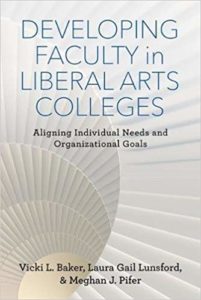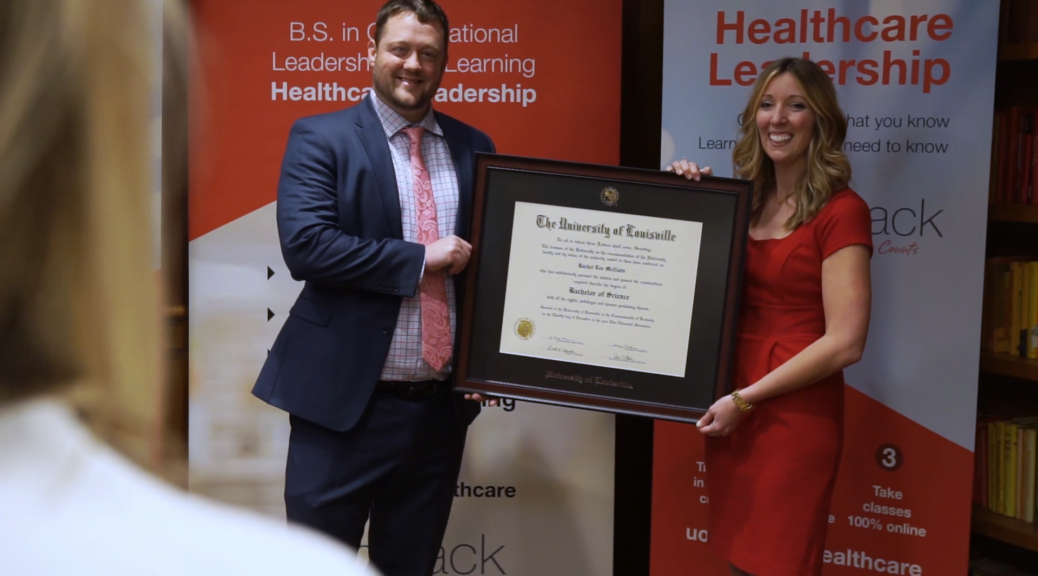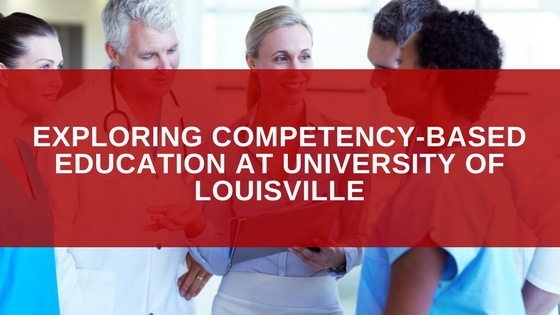
Higher Ed Administration Spotlight: Research by Dr. Meghan Pifer
At its core, higher education is primarily focused on the growth and development of students. However, students are not the only ones to learn or to grow—nor should they be.
Continuous faculty development is an integral part of any successful institution. In fact, in today’s higher education environment, developing and enhancing learning and teaching methods is more important than ever. To that end, studies are conducted and distributed regularly to help foster more effective instructors.
 Published in November 2017 and written in part by University of Louisville professor Dr. Meghan Pifer, “Developing Faculty in Liberal Arts Colleges: Aligning Individual Needs and Organizational Goals,” is a great example of such a study.
Published in November 2017 and written in part by University of Louisville professor Dr. Meghan Pifer, “Developing Faculty in Liberal Arts Colleges: Aligning Individual Needs and Organizational Goals,” is a great example of such a study.
Dr. Pifer’s research covers everything from finding mentors to how entry-level faculty make the transition from sitting in the classroom to standing in front of the class. The study is based on faculty career development data across 13 institutions and the result is a compelling proposal for the faculty development in liberal arts colleges—both for the benefit of the professors and the institutions, and also the students they serve.
Who is Dr. Meghan Pifer?
 Currently a professor with the University of Louisville’s School of Education and Human Development, Dr. Pifer has an extensive research background immersed in studying how individuality and work partnerships intersect and impact outcomes for each member of the team as well as the trajectory of an organization as a whole.
Currently a professor with the University of Louisville’s School of Education and Human Development, Dr. Pifer has an extensive research background immersed in studying how individuality and work partnerships intersect and impact outcomes for each member of the team as well as the trajectory of an organization as a whole.
The publication of this book is a notable step in Dr. Pifer’s research career, and we look forward to seeing her continued positive impact on higher education.
Dr. Pifer’s ongoing contribution to the field of higher education makes her a valued member of the UofL team. Not only has she been a faculty member for the online Master of Arts in Higher Education Administration (MAHEA) program since 2016, Dr. Pifer also teaches for the traditional program and serves as the Senior Assistant Director for the Department of Educational Leadership, Evaluation and Organizational Development.
About the Online MAHEA Program
The online Master of Arts in Higher Education Administration program is largely oriented toward addressing challenges of leadership and administration within contemporary higher education, with concentrations in Administration, Teaching & Learning, Policy and Equity or Sports Administration.
The MAHEA program is part of a growing portfolio of Online Learning degrees and certificate opportunities. As a nationally-recognized, metropolitan research university, with a commitment to the intellectual, cultural and economic development of our diverse community of learners, the Online Learning programs deliver a long tradition of excellence—epitomizing the University of Louisville’s dedication to lifelong learning for both students and faculty.




